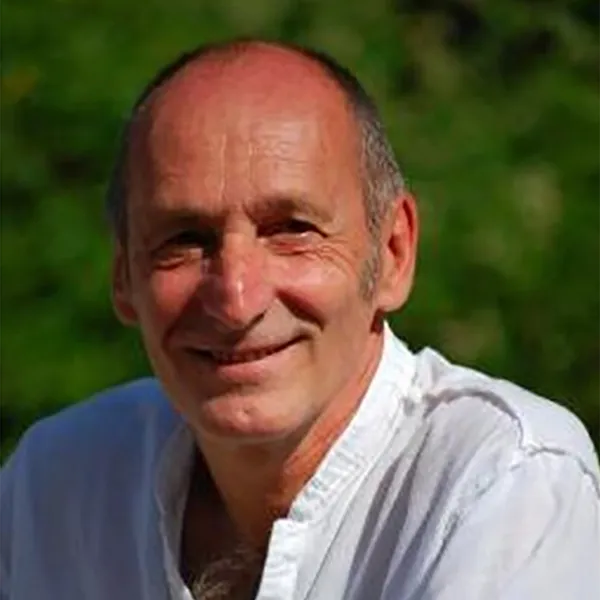December 10th - February 10th
Course Faculty: Pier Luigi Lattuada MD, PsyD, PhD

The term "healing" shares its etymological root with the term "wholeness" - a connection that reveals insight into the nature of both coaching and therapeutic work. Accordingly, the term "integral healing" affirms that genuine healing intrinsically entails caring for the whole person and the whole system, recognizing their fundamental interconnectedness.
Developmental practitioners recognize that attending to barriers to development requires an integral approach to healing that honors this wholeness. This entails careful attention to the physical, emotional, relational and meaning-making dimensions of the whole person as they exist within their cultural context. No dimension can effectively be addressed in isolation from the others. Such a holistic approach is firmly anchored in the activation of Central Capability, which serves as the foundation for sustainable transformation and growth.
Course Modules
- Healing the Whole Person in the Context of the Whole Person
- Freedom, Responsibility, and the Primacy of the Self
- Origins of Integral Healing in Technologies of the Sacred
- The Dreaming Body
- Symptoms and Archetypes
- At Home in the Body: Time, Place and the Body
- The Splendor of the Senses: Re-sacralizing Sexuality
- Life at the Body’s Pace: Sleep, Food, Movement, Rest
- Presence: Trust in Awareness
- Complex Adaptive Systems
- The Self-Organizing System: Healing is Intersubjective
- Polarity and Rhythm
- Trust in Awareness
- Proprioceptive and Exteroceptive Sensations
- The Neuroscience of Emotions
- Emotions and the Developing Mind
- Emotions and the Healing of Trauma
- States of Consciousness
- The Further Reaches of Attention and Observation
- Stages of Thinking: The Powers of Metacognition
- Wisdom and Consciousness: Transformation of the Self
- Archetypal Constellations: Working with Elemental Forces
- Healing is Transformative: Walking the Path of Integral Healing
- Transforming Collective Trauma and Social Healing
- Freedom and Well-Being
*Course modules are illustrative. Faculty build dynamic course content and class structure aligned with and beyond the listed modules.
Convening Faculty

Pier Luigi Lattuada
Pier Luigi Lattuada, MD, PhD, PsyD, a faculty member at Meridian University, is the President of the Integral Transpersonal Institute and the Director of the Transpersonal Psychotherapy School in Milan, Italy. He is a medical doctor with a PhD in Behavioral Studies and a PsyD in Clinical Psychology. Additionally, he is a psychotherapist and the founder of Biotransenergetics. The Transpersonal Psychotherapy School in Milan has been recognized by the Ministry of Education University and Research since 2002.

Pier Luigi Lattuada
Pier Luigi Lattuada, MD, PhD, PsyD, a faculty member at Meridian University, is the President of the Integral Transpersonal Institute and the Director of the Transpersonal Psychotherapy School in Milan, Italy. He is a medical doctor with a PhD in Behavioral Studies and a PsyD in Clinical Psychology. Additionally, he is a psychotherapist and the founder of Biotransenergetics. The Transpersonal Psychotherapy School in Milan has been recognized by the Ministry of Education University and Research since 2002.


Course Structure
- Seven-week online course from December 10th, 2024 through February 10th, 2025.
- Six, live, 75-minute Zoom sessions with faculty held Mondays at 9:00 am PT (Pacific Time) and recorded for participants who cannot join every session live. Note: There is no live class during Week One.
- Reading resources, networking, and emergent community outcomes.
- Content and collaboration via Meridian's social learning platform.


Course Schedule
Course Platform Opens
First Live Course Session
No Course Sessions (Winter Break)
Second Live Course Session
Third Live Course Session
Fourth Live Course Session
Fifth Live Course Session
Sixth Live Course Session
Course Fees
$250
- Live video classes
- Access to recordings on course platform
- Course platform community and written resources
- Participant launch of ongoing Community of Practice after the course
Accreditation
Meridian University is accredited by the Western Association of Schools and Colleges (WASC) - a higher education accreditor recognized by the United States Department of Education. WASC is also the accreditor for Stanford University, UCLA, and the University of California at Berkeley.
Frequently Asked Questions
Meridian’s online courses are conducted via the University's own learning platform.
Our online courses promote community learning, through strong interactive engagement with fellow students and faculty as well as live video sessions with faculty.
You will need an email account, a high-speed internet connection, and access to a computer, iOS or Android device.
If you are planning to attend the course video calls live, you will need a webcam and microphone for your device. (Course video calls are conducted with participants video-enabled.)
Live 75 to 90-min video sessions with faculty and fellow students will be conducted throughout the course. Each week's live video call will be recorded and posted on the course platform.
Video presentations, readings, discussions and learning activities will be accessible asynchronously and may be completed on participants' own schedule. Course resources and recordings will remain available up to 30 days after the close of the course.
Full refunds are available until two (2) days before the course begins, by request via email.
You do not need to apply to a Meridian graduate degree program to take this online course. This course is one of Meridian’s open-enrollment courses
The course support team will be available to assist from start to finish. Please send your questions/requests/issues to ctl@meridianuniversity.edu
Convening faculty generally lead each live session. Contributing faculty typically contribute in one of the live course sessions. Course resources address the work of both convening and contributing faculty.
Meridian has institutional and federal financial aid options for our graduate degree programs. This open enrollment course does not have financial aid or payment plans available.